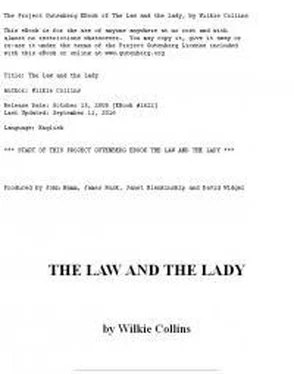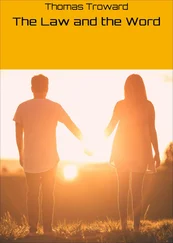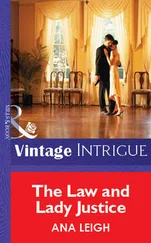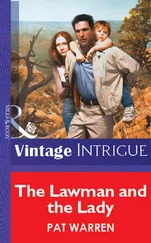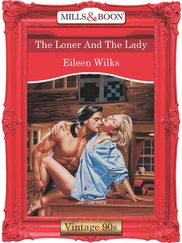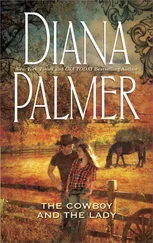Уилки Коллинз - The Law and the Lady
Здесь есть возможность читать онлайн «Уилки Коллинз - The Law and the Lady» весь текст электронной книги совершенно бесплатно (целиком полную версию без сокращений). В некоторых случаях можно слушать аудио, скачать через торрент в формате fb2 и присутствует краткое содержание. Год выпуска: 1999, Жанр: Классическая проза, на английском языке. Описание произведения, (предисловие) а так же отзывы посетителей доступны на портале библиотеки ЛибКат.
- Название:The Law and the Lady
- Автор:
- Жанр:
- Год:1999
- ISBN:нет данных
- Рейтинг книги:5 / 5. Голосов: 1
-
Избранное:Добавить в избранное
- Отзывы:
-
Ваша оценка:
- 100
- 1
- 2
- 3
- 4
- 5
The Law and the Lady: краткое содержание, описание и аннотация
Предлагаем к чтению аннотацию, описание, краткое содержание или предисловие (зависит от того, что написал сам автор книги «The Law and the Lady»). Если вы не нашли необходимую информацию о книге — напишите в комментариях, мы постараемся отыскать её.
The Law and the Lady — читать онлайн бесплатно полную книгу (весь текст) целиком
Ниже представлен текст книги, разбитый по страницам. Система сохранения места последней прочитанной страницы, позволяет с удобством читать онлайн бесплатно книгу «The Law and the Lady», без необходимости каждый раз заново искать на чём Вы остановились. Поставьте закладку, и сможете в любой момент перейти на страницу, на которой закончили чтение.
Интервал:
Закладка:
All this time the lower shelf of the cupboard was still waiting to be looked over.
I knelt down to examine it, eager to clear my mind, if I could, of the degrading jealousy that had got possession of me.
Unfortunately, the lower shelf contained nothing but relics of the Major’s military life, comprising his sword and pistols, his epaulets, his sash, and other minor accouterments. None of these objects excited the slightest interest in me. My eyes wandered back to the upper shelf; and, like the fool I was (there is no milder word that can fitly describe me at that moment), I took the photograph out again, and enraged myself uselessly by another look at it. This time I observed, what I had not noticed before, that there were some lines of writing (in a woman’s hand) at the back of the portraits. The lines ran thus:
“To Major Fitz-David, with two vases. From his friends, S. and E. M.”
Was one of those two vases the vase that had been broken? And was the change that I had noticed in Major Fitz-David’s face produced by some past association in connection with it, which in some way affected me? It might or might not be so. I was little disposed to indulge in speculation on this topic while the far more serious question of the initials confronted me on the back of the photograph.
“S. and E. M.?” Those last two letters might stand for the initials of my husband’s name—his true name—Eustace Macallan. In this case the first letter (“S.”) in all probability indicated her name. What right had she to associate herself with him in that manner? I considered a little—my memory exerted itself—I suddenly called to mind that Eustace had sisters. He had spoken of them more than once in the time before our marriage. Had I been mad enough to torture myself with jealousy of my husband’s sister? It might well be so; “S.” might stand for his sister’s Christian name. I felt heartily ashamed of myself as this new view of the matter dawned on me. What a wrong I had done to them both in my thoughts! I turned the photograph, sadly and penitently, to examine the portraits again with a kinder and truer appreciation of them.
I naturally looked now for a family likeness between the two faces. There was no family likeness; on the contrary, they were as unlike each other in form and expression as faces could be. Was she his sister, after all? I looked at her hands, as represented in the portrait. Her right hand was clasped by Eustace; her left hand lay on her lap. On the third finger, distinctly visible, there was a wedding-ring. Were any of my husband’s sisters married? I had myself asked him the question when he mentioned them to me, and I perfectly remembered that he had replied in the negative.
Was it possible that my first jealous instinct had led me to the right conclusion after all? If it had, what did the association of the three initial letters mean? What did the wedding-ring mean? Good Heavens! was I looking at the portrait of a rival in my husband’s affections—and was that rival his Wife?
I threw the photograph from me with a cry of horror. For one terrible moment I felt as if my reason was giving way. I don’t know what would have happened, or what I should have done next, if my love for Eustace had not taken the uppermost place among the contending emotions that tortured me. That faithful love steadied my brain. That faithful love roused the reviving influences of my better and nobler sense. Was the man whom I had enshrined in my heart of hearts capable of such base wickedness as the bare idea of his marriage to another woman implied? No! Mine was the baseness, mine the wickedness, in having even for a moment thought it of him!
I picked up the detestable photograph from the floor, and put it back in the book. I hastily closed the cupboard door, fetched the library ladder, and set it against the book-case. My one idea now was the idea of taking refuge in employment of any sort from my own thoughts. I felt the hateful suspicion that had degraded me coming back again in spite of my efforts to repel it. The books! the books! my only hope was to absorb myself, body and soul, in the books.
I had one foot on the ladder, when I heard the door of the room open—the door which communicated with the hall.
I looked around, expecting to see the Major. I saw instead the Major’s future prima donna standing just inside the door, with her round eyes steadily fixed on me.
“I can stand a good deal,” the girl began, coolly, “but I can’t stand this any longer?”
“What is it that you can’t stand any longer?” I asked.
“If you have been here a minute, you have been here two good hours,” she went on. “All by yourself in the Major’s study. I am of a jealous disposition—I am. And I want to know what it means.” She advanced a few steps nearer to me, with a heightening color and a threatening look. “Is he going to bring you out on the stage?” she asked, sharply.
“Certainly not.”
“He ain’t in love with you, is he?”
Under other circumstances I might have told her to leave the room. In my position at that critical moment the mere presence of a human creature was a positive relief to me. Even this girl, with her coarse questions and her uncultivated manners, was a welcome intruder on my solitude: she offered me a refuge from myself.
“Your question is not very civilly put,” I said. “However, I excuse you. You are probably not aware that I am a married woman.”
“What has that got to do with it?” she retorted. “Married or single, it’s all one to the Major. That brazen-faced hussy who calls herself Lady Clarinda is married, and she sends him nosegays three times a week! Not that I care, mind you, about the old fool. But I’ve lost my situation at the railway, and I’ve got my own interests to look after, and I don’t know what may happen if I let other women come between him and me. That’s where the shoe pinches, don’t you see? I’m not easy in my mind when I see him leaving you mistress here to do just what you like. No offense! I speak out—I do. I want to know what you are about all by yourself in this room? How did you pick up with the Major? I never heard him speak of you before to-day.”
Under all the surface selfishness and coarseness of this strange girl there was a certain frankness and freedom which pleaded in her favor—to my mind, at any rate. I answered frankly and freely on my side.
“Major Fitz-David is an old friend of my husband’s,” I said, “and he is kind to me for my husband’s sake. He has given me permission to look in this room—”
I stopped, at a loss how to describe my employment in terms which should tell her nothing, and which should at the same time successfully set her distrust of me at rest.
“To look about in this room—for what?” she asked. Her eye fell on the library ladder, beside which I was still standing. “For a book?” she resumed.
“Yes,” I said, taking the hint. “For a book.”
“Haven’t you found it yet?”
“No.”
She looked hard at me, undisguisedly considering with herself whether I were or were not speaking the truth.
“You seem to be a good sort,” she said, making up her mind at last. “There’s nothing stuck-up about you. I’ll help you if I can. I have rummaged among the books here over and over again, and I know more about them than you do. What book do you want?”
As she put that awkward question she noticed for the first time Lady Clarinda’s nosegay lying on the side-table where the Major had left it. Instantly forgetting me and my book, this curious girl pounced like a fury on the flowers, and actually trampled them under her feet!
“There!” she cried. “If I had Lady Clarinda here I’d serve her in the same way.”
Читать дальшеИнтервал:
Закладка:
Похожие книги на «The Law and the Lady»
Представляем Вашему вниманию похожие книги на «The Law and the Lady» списком для выбора. Мы отобрали схожую по названию и смыслу литературу в надежде предоставить читателям больше вариантов отыскать новые, интересные, ещё непрочитанные произведения.
Обсуждение, отзывы о книге «The Law and the Lady» и просто собственные мнения читателей. Оставьте ваши комментарии, напишите, что Вы думаете о произведении, его смысле или главных героях. Укажите что конкретно понравилось, а что нет, и почему Вы так считаете.
